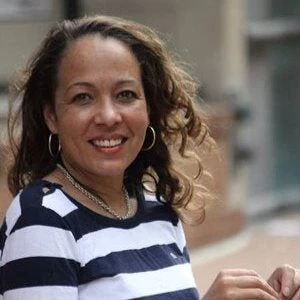More than one billion people globally – about 15% of the world’s population – are estimated to have a disability. Most of them live in developing countries. This number is expected to increase as aging, war and conflict, natural disasters, forced displacement, and other factors continue to affect the prevalence of disability.
Persons with disabilities face higher rates of poverty compared with persons without disabilities. They encounter attitudinal and environmental barriers that hinder their full and effective participation in society on an equal basis with others. Persons with disabilities’ lower rates of economic and labor market participation also impose a higher welfare burden on governments.
The global development and poverty reduction agenda will not be effective unless it addresses the socioeconomic inequality of persons with disabilities and ensures their participation in all stages of development programs. With a focus on social inclusion, disability-inclusive development is directly responsive to the World Bank’s twin goals of ending extreme poverty and boosting shared prosperity.
Disability Inclusion and Accountability Framework
Over the last several years, the World Bank has accelerated its support for disability-inclusive development with significant strides in operations and analytical work.
This has culminated in World Bank’s first Disability Inclusion and Accountability Framework, which offers a roadmap for:
- Including disability in the World Bank’s policies, operations, and analytical work; and
- Building internal capacity for supporting clients in implementing disability-inclusive development programs.
The Framework is also relevant to policymakers, government officials, other development organizations, and persons with disabilities.
The Framework has been launched today on the occasion of the 11th Conference of States Parties to the Convention on the Rights of Persons with Disabilities at the United Nations, the premier international gathering of governments, development practitioners, and civil society working on disability inclusion.
How will the Framework support development work?
The Framework provides four main principles for guiding the World Bank’s engagement with persons with disabilities:
- Nondiscrimination and equality
- Accessibility
- Inclusion and participation
- Partnership and collaboration
The appendices to this Framework highlight key areas of engagement for a significant impact on the inclusion, empowerment, and full participation of persons with disabilities.
These areas include transport, urban development, disaster risk management, education, social protection, jobs and employment, information and communication technology, water sector operations, and health care.
The Framework is a living document that will be reviewed periodically and strengthened with new focus areas and evidence to reflect ongoing developments.
We invite you to download the Disability Inclusion and Accountability Framework. We hope you find it useful for your work to build inclusive, resilient, and sustainable cities and communities for all.
Related:
- Topic brief: Disability Inclusion
- Report: Disability Inclusion and Accountability Framework
- Report: Inclusion Matters: The Foundation for Shared Prosperity
- Subscribe to our Sustainable Communities newsletter and Flipboard magazine
- Follow @WBG_Cities on Twitter




Join the Conversation